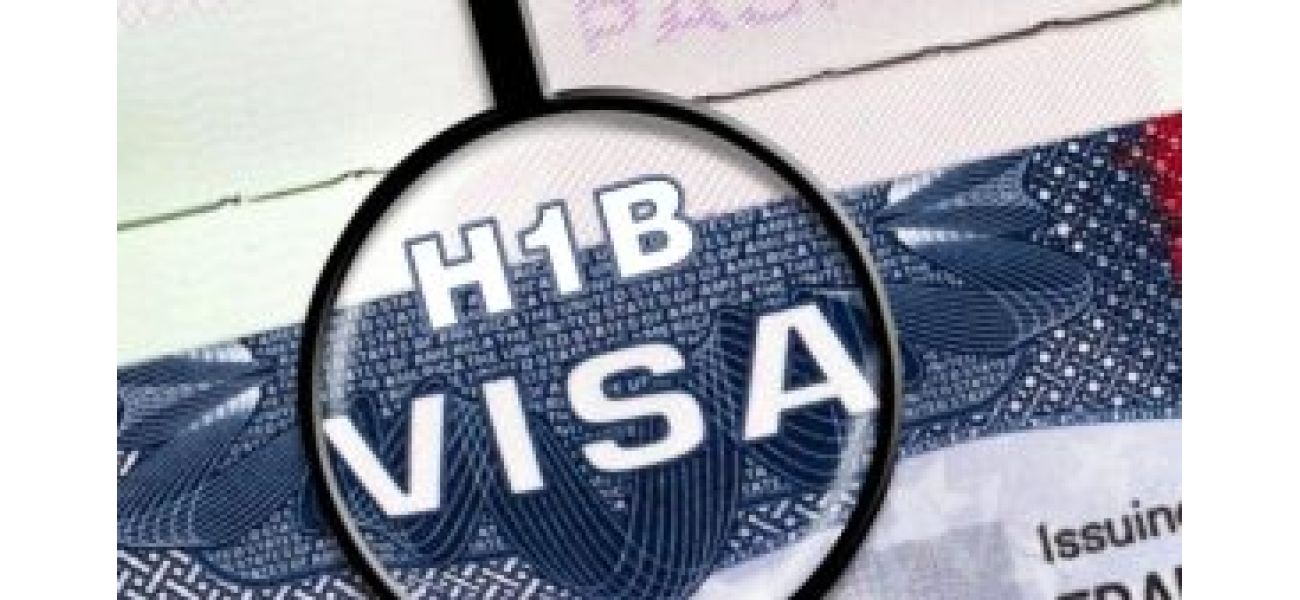H-1B visa for Chinese citizens.
Trump's administration made the H-1B visa expensive, causing problems for Indian professionals and scientists seeking high-paying jobs in the US.
October 7th 2025.

When the US President, Donald Trump, made the decision to make the highly sought-after H-1B visa available to foreigners at a steep price, it caused a lot of concern for high-tech professionals and scientists from India and other countries who were hoping to secure well-paying jobs in America. In fact, a majority of the visas were obtained by Indian professionals. This caused speculation that Europe could be an alternative destination, despite the growing intolerance towards migrants in many European countries. Japan and China were also considered as potential options.
However, China has now made a move to make itself a more appealing destination for foreign professionals in the STEM fields by launching its K Visa program. This visa, which was first announced in August, has now gained a lot of attention in the wake of Trump's efforts to restrict Indian professionals from working in the US. While the details of the K Visa are still unclear, it has already sparked interest in India and has been met with criticism from thousands of users on Chinese social media.
Many students in China who are pursuing careers in STEM fields are worried that the new visa will lead to tough competition in an already sluggish job market. This is because China has not traditionally been a popular destination for foreign professionals, and there is already a surplus of domestic talent. Netizens in China have expressed their frustration with the new visa, questioning why the authorities are trying to bring in foreign professionals when there are already so many well-educated Chinese citizens in the job market. Some have even raised concerns about whether foreigners would be able to adapt to life in China, citing language barriers and the country's tightly controlled political system.
The backlash against the K Visa has been so intense that state media outlets have had to come out to reassure the public. The Global Times, in a recent article, praised the new program as an opportunity for China to showcase its openness and confidence on the global stage. The People's Daily also issued a warning to the public, stating that misrepresenting the K Visa would only create confusion. Despite these efforts to calm the public, there are still many unanswered questions for foreign professionals who are considering working in China.
One of the main concerns is whether they will have the same level of freedom and opportunities for creativity and innovation as they would in the US. The West, especially the US and European nations, have a more open and liberal climate that allows for creativity and innovation to thrive. This may not be the case in China, given its track record. Language is also a major barrier, as many researchers and academics who have moved from the US to China are fluent in Mandarin and have Chinese heritage. For foreign professionals, communication with their Chinese colleagues may prove to be a major hurdle.
Furthermore, adjusting to China's tightly controlled political environment may also be a challenge for foreign professionals. The Chinese value proper behavior and may not be as casual or open as some may be used to. This is something that both employers and employees will have to navigate in order to work successfully together. As China positions itself as a new global leader, some may wonder if it is truly trying to help or if it is taking advantage of Trump's policies for its own benefit. Only time will tell.
However, China has now made a move to make itself a more appealing destination for foreign professionals in the STEM fields by launching its K Visa program. This visa, which was first announced in August, has now gained a lot of attention in the wake of Trump's efforts to restrict Indian professionals from working in the US. While the details of the K Visa are still unclear, it has already sparked interest in India and has been met with criticism from thousands of users on Chinese social media.
Many students in China who are pursuing careers in STEM fields are worried that the new visa will lead to tough competition in an already sluggish job market. This is because China has not traditionally been a popular destination for foreign professionals, and there is already a surplus of domestic talent. Netizens in China have expressed their frustration with the new visa, questioning why the authorities are trying to bring in foreign professionals when there are already so many well-educated Chinese citizens in the job market. Some have even raised concerns about whether foreigners would be able to adapt to life in China, citing language barriers and the country's tightly controlled political system.
The backlash against the K Visa has been so intense that state media outlets have had to come out to reassure the public. The Global Times, in a recent article, praised the new program as an opportunity for China to showcase its openness and confidence on the global stage. The People's Daily also issued a warning to the public, stating that misrepresenting the K Visa would only create confusion. Despite these efforts to calm the public, there are still many unanswered questions for foreign professionals who are considering working in China.
One of the main concerns is whether they will have the same level of freedom and opportunities for creativity and innovation as they would in the US. The West, especially the US and European nations, have a more open and liberal climate that allows for creativity and innovation to thrive. This may not be the case in China, given its track record. Language is also a major barrier, as many researchers and academics who have moved from the US to China are fluent in Mandarin and have Chinese heritage. For foreign professionals, communication with their Chinese colleagues may prove to be a major hurdle.
Furthermore, adjusting to China's tightly controlled political environment may also be a challenge for foreign professionals. The Chinese value proper behavior and may not be as casual or open as some may be used to. This is something that both employers and employees will have to navigate in order to work successfully together. As China positions itself as a new global leader, some may wonder if it is truly trying to help or if it is taking advantage of Trump's policies for its own benefit. Only time will tell.
[This article has been trending online recently and has been generated with AI. Your feed is customized.]
[Generative AI is experimental.]
0
0
Submit Comment




